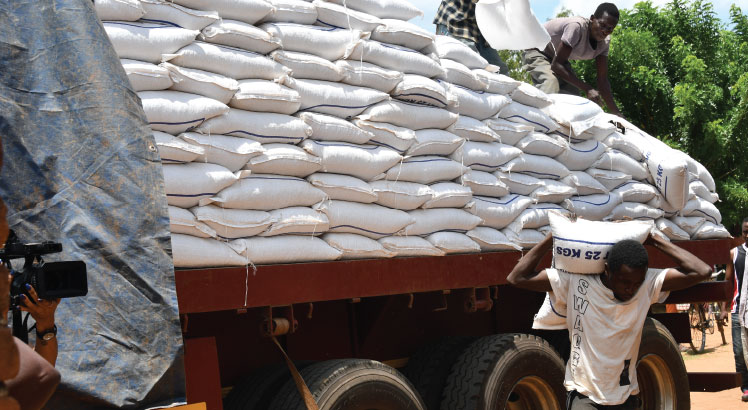District Development Coordinators (DDCs) in Matabeleland North and South have been instructed to prioritize local transporters for delivering maize to rural wards.
This initiative aims to support local businesses during the drought while expediting food distribution.
Only when they are unable to secure trucks locally, will DDCs be permitted to source from outside, nonetheless the preference is to use local transporters.
The government intends to move over 138 metric tonnes of maize to the 1 620 wards in rural areas, requiring 4 000 trucks to transport food in the shortest space of time.
Minister of Public Service, Labour, and Social Welfare, July Moyo said the government could engage the Procurement Regulatory Authority of Zimbabwe (PRAZ) to issue waivers for local trucks that do not have tax clearance.
“We are looking for transporters from the district where food is situated to go into the wards. People must be happy to see sons and daughters transporting food to them, don’t bring people from outside, only when you can’t get food from within can go outside,” Moyo said during a drought mitigation meeting with DDCs and social welfare officers from Matabeleland North and South in Bulawayo on Sunday.
If the DDCs are unable to access local trucks in their districts, the minister directed them to report to him.
“You will have to demonstrate to me that in Insiza there is no one who can transport food. This is a new programme of disaster and we will continue to mobilise so we can pay,” Moyo said, noting that truckers who were unpaid for previous work should be patient and understand that the drought is a disaster.
“I am supervising the work at the new city in preparation for the SADC meeting under the vice president as we were tasked by the president to coordinate and supervise work done there. There are many contractors, some are still owed more than US$50 million having worked on the Beitbridge to Harare Road. They will get their money. It’s the same principle when we have a disaster. Let’s look for anyone then money can be given.”
The minister also instructed the DDCs to discuss issues of transporters in their meetings with the Civil Protection Unit rather than leave such issues to be discussed by their social workers alone.
Moyo added that the government could also engage the army if they have trucks.
“That’s how we deal with disasters, anybody who has trucks comes. Even the local government’s public works department. We will pay you to move food but don’t charge us like the private sector,” he stated.
Moyo explained that transportation should be a devolved system in line with the government’s “leaving no place behind and no one behind” mantra.
“We are basing this on over 35 000 villages in the country and we are saying the transport system has to be robust. It has to cover the number of people in each ward as quickly as possible. We don’t want other people to wait for this food. So let’s get as many trucks as possible,” he said
Moyo noted this was an opportunity to use local trucks as the government would pay them.
“This is the concept of devolution. You are empowering local people who have been doing service for their own people. Now the government can pay them to do that service for their own people. To move 138 000 tonnes, we will need over 4 000 trucks with a capacity of 30 tonnes,” the minister said.
He added the government will find a way to engage PRAZ after some DDCs raised concerns that few transporters had tax clearances.
“Those truckers that do have PRAZ are giving us headaches, saying they have lost trust in us because they feel we are robbing them,” said one DDC.
Another official suggested that since this drought was a disaster, a waiver of requirements should be done because processing the trucks with PRAZ and having them issued with clearance could take some time.
The minister acknowledged that as a “good suggestion.”
“Give us those trucks, with their registration numbers. PRAZ will clear them. This is an emergency. We need as many trucks, so hire as many,” Moyo said

